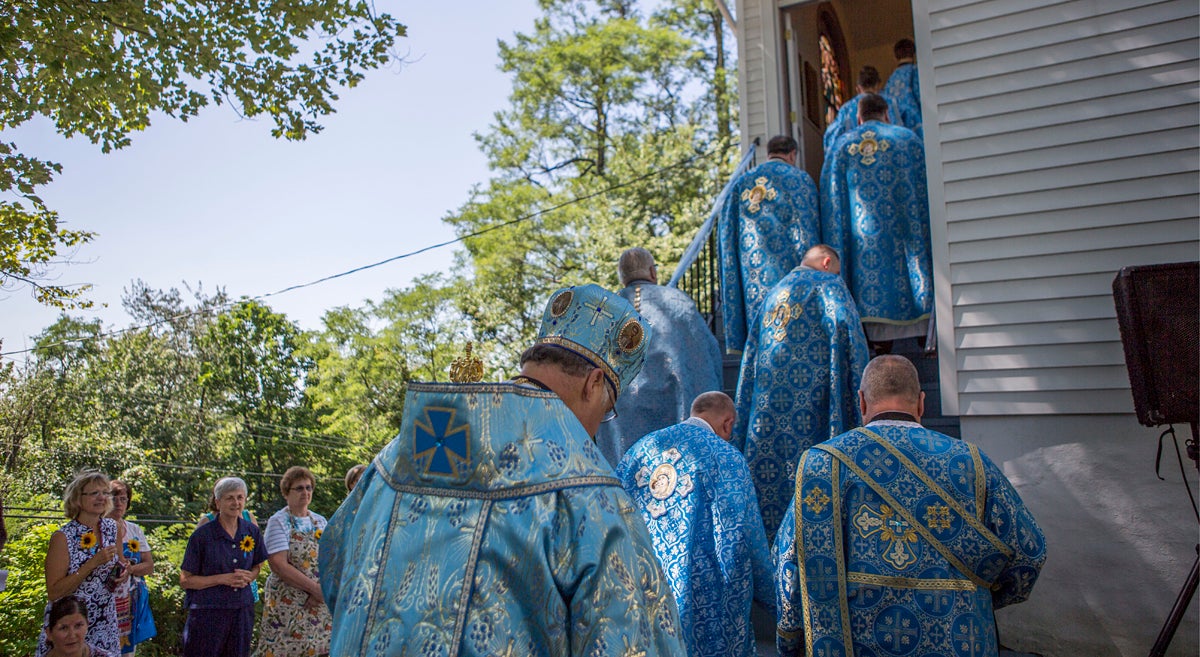In case you missed it: This week’s best reads from Pennsylvania cities

Priest enter the Assumption of the Blessed Virgin Mary Ukrainian Catholic Church during a holy pilgrimage to Centralia
Grappling with the week that was.
Have you subscribed to Grapple, our new podcast? It takes you inside distressed cities in Pennsylvania, examining the forces that drag them down and the people that work to build them up again. The first two episodes drop on September 21, but you can hear the trailer and subscribe now.
Now, onto other news.
Grappling with school challenges
A new study puts Pennsylvania among the most educationally segregated states in the nation. Many school district boundaries in Pennsylvania are drawn to separate poor students from wealthier students. The report, by EdBuild, found that Pennsylvania’s reliance on property taxes to fund education incentivizes wealthy districts to keep poor neighborhoods out.
As we’ve reported, that system is changing, slowly. For a closer look at one county, Lancaster Online looked at how these economic “fault lines” affect learners in Lancaster’s 65 elementary schools.
As the school year starts, there are still 84 teacher vacancies across the School District of Philadelphia. That’s an improvement from past years, but still disappointing to some local leaders and families who believed the district when they said they’d have all vacancies filled by June 30.
Grappling with the justice system
A recent high-profile murder-suicide in western Pennsylvania has prompted a look at Pennsylvania’s bail system. Though, as Pennsylvania Secretary of Corrections John Wetzel told the Pittsburgh Tribune-Review, “I would even be hesitant to say we have a bail system.”
It’s a haphazard, county-by-county system that results in some sitting in jail for weeks awaiting trial and unable to pay bail. Philadelphia is hoping a computer algorithim can help move some of those cases through the system faster. But in other cases, high-risk offenders are released prematurely.
That was the case with the Washington County man who murdered his wife and killed himself after being released on a $100,000 bond. He was initially arrested for kidnapping his wife and holding her captive for 13 days.
New Mexico is considering doing away with the bail system completely, as part of a national discussion about inequity in the justice system. We’ve reported on the lack of bilingual police officers in many Pennsylvania cities with large Latino populations. The Pew Research Center looks at the challenges faced by offenders requiring interpreters in the courtroom. And the Guardian is digging into the public defender crisis across the nation.
Keystone Crossroads is also reporting on the challenges faced by Pennsylvania’s public defenders — and the clients they serve. If you have any experience on either side of that relationship or want to contribute to our reporting, reach out at eleanor@psu.edu.
Grappling with blight
Spend enough time in distressed cities and you’ll see your fair share of blighted properties — houses with the porches falling off, factories with the windows long gone, empty, decrepit storefronts. It’s the most visual representation of a city’s decline.
Which is why fighting back against blight is often a top priority for cities. For example, the York Economic Alliance is gathering resources to target the city’s blighted properties. Even the state legislature is getting on board. There are nearly two dozen anti-blight laws up for consideration this session.
Public Source is taking a closer look at blight in western Pennsylvania. They’ve reported on Pittsburgh’s attempt to reinvent vacant spaces and those who want to preserve historic, but blighted, homes. Finally, they looked at Pittsburgh’s land bank progress.
But what happens when the building is in fine shape, but the town that surrounds it has all but disappeared? That’s a very unique case: the Assumption of the Blessed Virgin Mary Ukrainian Catholic Church in Centralia, Pa. Centralia was mostly evacuated after an underground coal fire started in the 1980s. There is one church left standing, which serves many more people than the 12 remaining town residents.
Grappling with the past
WITF’s Flight 93 reporting is a must-read this September 11th weekend. See how the last 15 years has changed the family members of the “forty heroes” lost that day in Somerset County, and catch up on all the reporting around the construction of the memorial.
WHYY is your source for fact-based, in-depth journalism and information. As a nonprofit organization, we rely on financial support from readers like you. Please give today.


